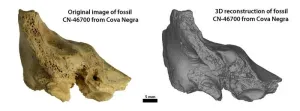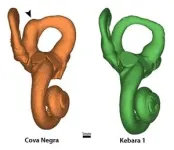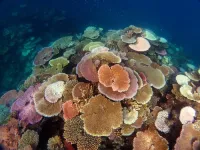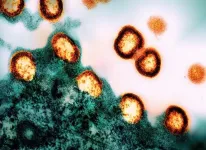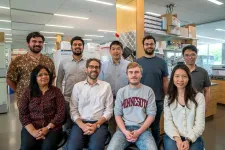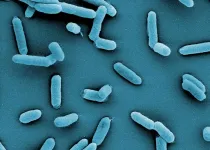(Press-News.org) BINGHAMTON, N.Y. -- A new study published by an international multidisciplinary team of researchers including faculty at Binghamton University, State University of New York, documents the first case of Down syndrome in Neandertals and reveals that they were capable of providing altruistic care and support for a vulnerable member of their social group.
The research, led by anthropologists at the University of Alcalá and the University of Valencia in Spain, studied the skeletal remains of a Neandertal child, whom they affectionately named “Tina”, found at Cova Negra, a cave in Valencia, Spain long known for yielding important Neandertal discoveries.
“The excavations at Cova Negra have been key to understanding the way of life of the Neandertals along the Mediterranean coast of the Iberian Peninsula and have allowed us to define the occupations of the settlement: of short temporal duration and with a small number of individuals, alternating with the presence of carnivores," said University of Valencia Professor of Prehistory Valentín Villaverde.
The researchers made micro-computed tomography scans of a small cranial fragment of the right temporal bone, containing the ear region, to reconstruct a three-dimensional model for measurement and analysis. Tina suffered from a congenital pathology of the
inner ear associated with Down syndrome that produced severe hearing loss and disabling vertigo. This individual survived to at least 6 years of age, but would have required extensive care from other members of their social group.
“This is a fantastic study, combining rigorous archaeological excavations, modern medical imaging techniques and diagnostic criteria to document Down syndrome in a Neandertal individual for the first time. The results have significant implications for our understanding of Neandertal behavior,” said Binghamton University Professor of Anthropology Rolf Quam.
Researchers have known for decades that Neandertals cared for disabled individuals. However, to date, all known cases of social care among Neandertals involved adult individuals, leading some scientists to discount this as truly altruistic behavior and instead to suggest it more likely represented reciprocal exchange of help between equals.
"What was not known until now was any case of an individual who had received help, even if they could not return the favor, which would prove the existence of true altruism among Neandertals. That is precisely what the discovery of 'Tina' means,” said Mercedes Conde, professor at the University of Alcalá and lead author of the study.
The study, “The child who lived: Down syndrome among Neandertals?” was published in Science Advances.
END
First case of Down syndrome in Neandertals documented in new study
Research reveals that Neandertals showed care and support for young child
2024-06-26
ELSE PRESS RELEASES FROM THIS DATE:
Future risk of coral bleaching set to intensify globally
2024-06-26
An international team of researchers led by the University of Adelaide has projected future marine heatwaves will cause coral reefs to be at severe risk of bleaching for longer periods than previously seen.
Through climate modelling and supercomputing, the researchers discovered that extended bleaching events may significantly disrupt coral spawning.
“We found that coral bleaching will start earlier in the year and last longer than previously thought,” said lead author Dr Camille Mellin, from the University of Adelaide’s Environment Institute.
“Our results show that by 2080, coral bleaching will tend to start in spring, rather than late summer, which ...
The science of procrastination
2024-06-26
Procrastination, the deliberate but detrimental deferring of tasks, has many forms. Sahiti Chebolu of the Max Planck Institute for Biological Cybernetics uses a precise mathematical framework to understand its different patterns and their underlying reasons. Her insights could help tailor individual strategies to tackle the issue.
“Why did I not do this when I still had the time?” – Whether it is filing taxes, meeting a deadline at work, or cleaning the apartment before a family visit, most of us have already wondered why we tend to put off certain tasks, even in the face of unpleasant consequences. Why do we make decisions that are harmful to us – against our better ...
Saudi women’s quest for change enabled them earn citizenship rights
2024-06-26
Saudi women have obtained their citizenship rights through their own struggle and there is little truth in the widely held idea in the West that their role in the fight for their freedom has been negligible.
The finding is part of a new research in the journal Diogenes authored by Zahia Salhi, a professor at Sharjah University’s College of Arts, Humanities, and Social Sciences. The University of Cambridge Press has also posted Prof. Salhi’s research online.
“Far from being passive victims of their society, Saudi women are active agents ...
Introducing Sir Stanley: Binghamton University professor and Nobel Prize winner knighted by King Charles
2024-06-26
BINGHAMTON, N.Y. -- Binghamton University, State University of New York Distinguished Professor and Nobel Prize Laureate M. Stanley Whittingham has been named a Knight Bachelor “for his services to research in chemistry.”
The honor entitles him to be known as Sir Stanley, or Sir Stanley Whittingham, and was announced as part of King Charles III’s official birthday honours list.
In his 30-plus-year career, Whittingham has been a pioneer in the development of lithium-ion batteries, for which he won the Nobel Prize in Chemistry in 2019. ...
NIH statement on preliminary efficacy results of twice-yearly lenacapavir for HIV prevention in cisgender women
2024-06-26
The injectable antiretroviral drug lenacapavir was safe and 100% effective as long-acting HIV pre-exposure prophylaxis (PrEP) among cisgender women in a Phase 3 clinical trial, according to top-line findings released by Gilead Sciences, Inc., the study sponsor. Lenacapavir is administered every six months, making it the most durable HIV prevention method to have shown efficacy in this population. NIAID applauds the study sponsor, investigators, study staff, and—most importantly—the participants ...
Neurobiologist Joshua C. Brumberg named CUNY Graduate Center president
2024-06-26
The City University of New York has appointed Joshua C. Brumberg as president of the CUNY Graduate Center, making permanent a post he has held on an interim basis since October 2023. Brumberg, a neurobiologist who has been a faculty member, dean and researcher during his 22-year career at CUNY, will lead the University’s renowned center of graduate education, scholarship and public-interest research. CUNY’s Board of Trustees approved the appointment at its meeting last night.
“Dr. Brumberg has played a key role in expanding CUNY’s research enterprise over the past several years,” said Chancellor Félix V. Matos Rodríguez. “A ...
Cell division: Before commitment, a very long engagement
2024-06-26
Before a cell commits fully to the process of dividing itself into two new cells, it may ensure the appropriateness of its commitment by staying for many hours—sometimes more than a day—in a reversible intermediate state, according to a discovery by researchers at Weill Cornell Medicine. Their revelation of this fundamental feature of biology includes details of its mechanisms and dynamics, which may inform the development of future therapies targeting cancers and other diseases.
In their study, published June 26 in Nature, the researchers developed new tools allowing them to track over time the activation state of E2F, a ...
New tool enables faster, more cost-effective genome editing of traits to improve agriculture sustainability
2024-06-26
ST. LOUIS, MO, June 26, 2024 – With the goal of reducing the time and cost it takes to bring an improved crop to the marketplace, research conducted in the laboratory of Keith Slotkin, PhD, and his colleagues in the Plant Transformation Facility at the Donald Danforth Plant Science Center, was recently published in the scientific journal Nature. The publication Transposase-assisted target site integration for efficient plant genome engineering focuses on technology called TATSI (Transposase-Assisted Target Site Integration), which uses transposable elements to integrate custom DNA into specific sites in plant genomes.
The ...
Unlocking the world of bacteria
2024-06-26
Bacteria populate virtually every habitat on Earth, including within and on our own bodies. Understanding and engineering bacteria can lead to new methods for diagnosing, treating, and preventing infections. Additionally, it presents opportunities to protect crops from disease and create sustainable cell factories for chemical production, reducing environmental impact — just a few of the many benefits to society. To unlock these advantages, scientists need the ability to manipulate the genetic content of these bacteria. However, a longstanding bottleneck in genetically engineering bacteria has been the efficient ...
Argonne to support new AI for science projects as part of the National AI Research Resource Pilot
2024-06-26
The U.S. Department of Energy’s (DOE) Argonne National Laboratory will support three innovative artificial intelligence (AI)-driven science projects as part of the first round of awards from the National Artificial Intelligence Research Resource (NAIRR) Pilot.
Led by the National Science Foundation (NSF) in collaboration with DOE and several partners, the NAIRR Pilot aims to provide researchers and students with expanded access to key AI resources and data. NAIRR’s ultimate goal ...
LAST 30 PRESS RELEASES:
The Lancet: First-ever in-utero stem cell therapy for fetal spina bifida repair is safe, study finds
Nanoplastics can interact with Salmonella to affect food safety, study shows
Eric Moore, M.D., elected to Mayo Clinic Board of Trustees
NYU named “research powerhouse” in new analysis
New polymer materials may offer breakthrough solution for hard-to-remove PFAS in water
Biochar can either curb or boost greenhouse gas emissions depending on soil conditions, new study finds
Nanobiochar emerges as a next generation solution for cleaner water, healthier soils, and resilient ecosystems
Study finds more parents saying ‘No’ to vitamin K, putting babies’ brains at risk
Scientists develop new gut health measure that tracks disease
Rice gene discovery could cut fertiliser use while protecting yields
Jumping ‘DNA parasites’ linked to early stages of tumour formation
Ultra-sensitive CAR T cells provide potential strategy to treat solid tumors
Early Neanderthal-Human interbreeding was strongly sex biased
North American bird declines are widespread and accelerating in agricultural hotspots
Researchers recommend strategies for improved genetic privacy legislation
How birds achieve sweet success
More sensitive cell therapy may be a HIT against solid cancers
Scientists map how aging reshapes cells across the entire mammalian body
Hotspots of accelerated bird decline linked to agricultural activity
How ancient attraction shaped the human genome
NJIT faculty named Senior Members of the National Academy of Inventors
App aids substance use recovery in vulnerable populations
College students nationwide received lifesaving education on sudden cardiac death
Oak Ridge National Laboratory launches the Next-Generation Data Centers Institute
Improved short-term sea level change predictions with better AI training
UAlbany researchers develop new laser technique to test mRNA-based therapeutics
New water-treatment system removes nitrogen, phosphorus from farm tile drainage
Major Canadian study finds strong link between cannabis, anxiety and depression
New discovery of younger Ediacaran biota
Lymphovenous bypass: Potential surgical treatment for Alzheimer's disease?
[Press-News.org] First case of Down syndrome in Neandertals documented in new studyResearch reveals that Neandertals showed care and support for young child
